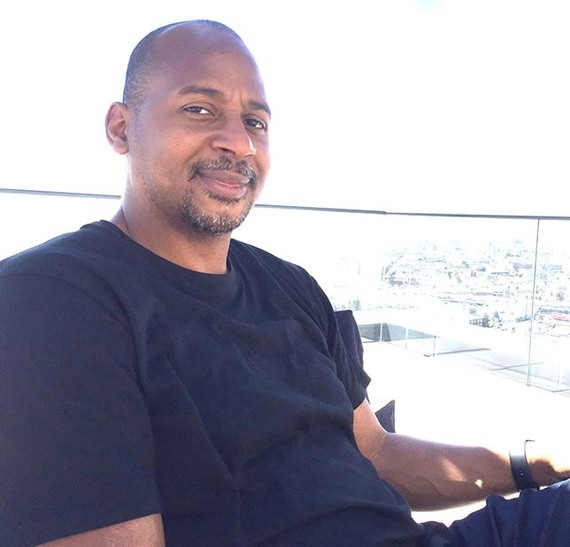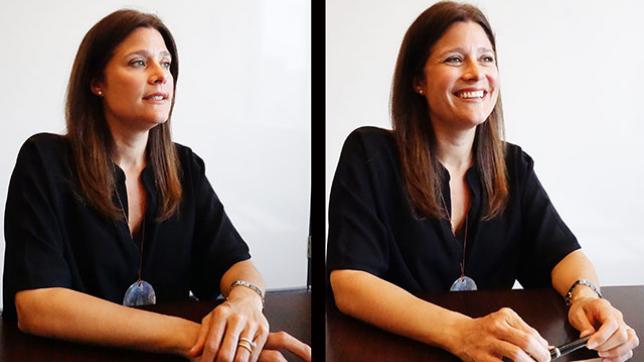My friend Steve is an early-bird and a perfectionist. He measures the tops of his side-tables and cabinets to mathematically determine the ideal location for a-framed photos, cups and plates, and general keepsakes from his extensive travels around the world. His wife Rachel is the polar opposite. She sleeps late, misplaces papers, and keeps things simple. When they met, they joked that their relationship was doomed, but they had been married twenty years when they decided to travel to a secluded, off-the-grid, beach-hut thirty miles south of Cancun.
On the fourth night of their trip, they were sitting on wooden stools at the local “bar.” They shared small shots of tequila with similar sized glassed of lime juice and tomato juice. They’d sip one, then the other, then trade them. They giggled at their joy over these small glasses. Steve lifted one above his head to find the brand, but couldn’t tell if what he saw was a word or a haphazard scratch along the bottom.
“It doesn’t matter,” she said, slightly tipsy, “Let’s enjoy this moment.”
“Maybe I’ll buy the glass from this bar, to take home with us.”
“Why bother, we’ll just have to come back.”
Sometime later that night, after a few more small glasses of tequila, lime juice and tomato juice they sauntered back to their unwired beach hut. His arms around her waist. Hers around his shoulders. He stooped slightly to the left to allow her arms to fully cross his neck. They passed through the beaded doorway and fell into the hard and dusty mattress.
“Looks like its going to be anther beautiful day tomorrow,” Steve said, “I think I’ll get up early to see the sunset.”
The next morning was their fifth morning at the hut. Starting with the first full day, Steve would wake up early, unfurl a woven mat at a specific spot on the beach near the ocean, practice yoga and then swim in the tranquil clear water until he reached the invisible line of the mouth of the small bay where the hut was situated. The bay had two shoulders nearly equidistant from the hut. The area could have been called “Half-Moon” bay as the bay was nearly a true half moon. He would swim until he reached the invisible edge of the half-moon.
As planned, Steve woke a little bit early in order to catch the sunrise as he practiced his yoga. He laid out his mat, exercised through his routine, and walked deliberately in a straight line towards the ocean, aiming for the midway point between the bay’s shoulders.
The water was not cold, but refreshing. He loved the caribbean for its warm and clear waters. Once he was up to his waist in the water he dove in with his hands then his head and began his freestyle stroke, counting his breaths. He thought of his swimming as a mediation where he would vacate his mind of any extra thought beyond his breathing and strokes in groups of ten. He’d count up to ten, then start again. He would often unintentionally insert the word “zero” as a halfway between ten and one, but he worked to release this thought as well.
He was deep in his meditation, enjoying the water, the air as it entered his lungs, the air as he blew the bubbles into the water. The warmth of the new sun on his back and legs and on the side of his face when he took a breath. It was during one of these breaths where the sun hit his face that he realized he didn’t see the left shoulder of the bay in his peripheral vision. He halted his swimming, looking straight out into the ocean, and he didn’t see either shoulder of the bay in his periphery. He burst around to look back at the beach and then he knew. He had been pulled outside of the bay by a quiet tide. He was nearly four of five times further out in the water than he typically would be and he could tell he was being pulled further out.
He could barely see the small hut. He didn’t see any boats within the horizon either or else he would have started yelling. He floated there, treading water, looking in all directions for something to help him gage the distance he had traveled and at what trajectory he was moving further away.
After what he thought was five minute he tried to swim back, paddling his body at angles to the shore as he had learned as a boy to avoid the riptide. He swam for what he though was fifteen minutes, still using his meditation routine to keep himself calm, but when he tried to measure his success it appeared as if he had stood still. He was growing tired. His arms ached. His hands and feet were numb and tingling.
“Well,” he said aloud to himself, “I guess this is it. This is where it all ends,” and he began to cry, and shake in his misery. He yelled out for help, belting as loud as he could five times. Splashing at the water at his sides. Then the misery passed and he felt an odd clarity.
“What should I do now?” He asked himself. “Enjoy yourself,” he answered himself back. “But how?” he asked himself. “Back float.” He answered himself and turning and stiffening his body he floated on his back and looked up at the clouds. “Beautiful day,” he said aloud. He first started counting the clouds, then he started to identify the meteorological names of the types of clouds, then he started to think of them as characters in a play and wrote lines for them. The sky was a wide blue, the could soft tufts, the sun a pointed orb of hot yellow.
His back hurt and his arms continued to tire, to seem to turn themselves off, to not listen to his brain.
“What should I do now?” he asked himself. “Why not dive and look at the fish?” he answered himself. He turned his body, took a gasp of air, and dove into the water, not using his muscles too much in hopes to conserve his energy. He laughed at himself for the thought of conserving his energy seemed fruitless, but he decided he wanted to see as many fish as he could, and he needed his energy for that.
Under the water surface were schools of fish of all different types and varieties. Some scooped around his feet, others chased after invisible forces further down in the deeps. The fish would appear out of the invisible and then disappear out of his vision. He couldn’t believe how beautiful the underwater happenings were and thought about how many times in his life he had swam above these things without seeing them. He continued to watch the fish and then noticed how one group seemed to disappear behind something dark. He rose his head above the water and didn’t see any hint of a difference on the surface. He dove again and swam towards the shadow.
It was a reef or a sandbar or mixture of the two! He swam to the landing, wedged his feet where they could gain traction and stood. His head, shoulders and torso were above the water.
“I’m saved.” he said to himself. “I’m going to make it.” He looked down at his hands under the water, at how pale and wide they looked. He raised them up to his face, splashing water on his mouth and nose.
A little bit at a time he’d lower his face into the water to find and follow the path of the sandbar, making sure he didn’t get too close to the sharp edges of the coral. He realized that this sandbar was making an arc back towards the left shoulder of the bay, as if it was the other half of a full moon. He wondered if the bay was either the former mouth of a volcano or potentially the site of a meteor landing.
He slowly and deliberately made his way back to the left side of the bay, and then walked along the curve of the beach until he reached his wife sleeping on a mat to the left of the mat he placed on the beach earlier in the morning. She was snoring loudly. She had pulled the mosquito net over her entire body and over her heard. On top of that she placed her wide straw hat over her face and neck. He saw that her wrists and tops of her feet were becoming sunburned. He walked the few steps to the hut, pulled a towel from the drying bar, and draped it over her lower half. She woke, and moved the hat from her face to make sure it was him, then plopped it back down. She spoke to him through the layers.
“Hey, there you are. I thought you had decided to go into town or something.”
“No, I was swimming.”
“Oh, I couldn’t see you. Did you take a new route or something? That’s so unlike you.”
“Yes.”
“Well, good for you.”
“Yes. I guess it was.”
“Plus, it’s such a beautiful day, it’s a perfect day to be in the water.”
“Yes, it’s definitely a beautiful day.” Steve said, then laid back on the mat and felt the hot air wash over him. Rachel tugged her hand out from under her wraps and found his hand and held it tight. He gripped her hand right back.



